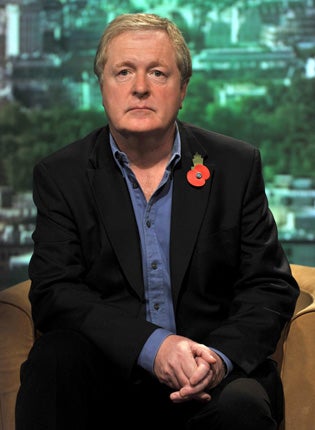Ex-Met chief demands police reform
Sir Ian Blair calls for amalgamation of police forces and more civilian staff

Your support helps us to tell the story
From reproductive rights to climate change to Big Tech, The Independent is on the ground when the story is developing. Whether it's investigating the financials of Elon Musk's pro-Trump PAC or producing our latest documentary, 'The A Word', which shines a light on the American women fighting for reproductive rights, we know how important it is to parse out the facts from the messaging.
At such a critical moment in US history, we need reporters on the ground. Your donation allows us to keep sending journalists to speak to both sides of the story.
The Independent is trusted by Americans across the entire political spectrum. And unlike many other quality news outlets, we choose not to lock Americans out of our reporting and analysis with paywalls. We believe quality journalism should be available to everyone, paid for by those who can afford it.
Your support makes all the difference.A major government inquiry must take place into reforming the police, Sir Ian Blair said today.
The former Metropolitan Police boss said the continuing encroachment of politics into policing, a raft of radical new legislation and the constantly changing face of society made an inquiry essential.
Writing in his autobiography Policing Controversy, published today, Sir Ian outlines his vision for how policing will change over the next decade and the pressures on all forces in England, Wales and Northern Ireland.
He suggests cheaper civilian staff could take on yet more roles currently performed by warranted police officers and says "there can be no logical argument" for 43 forces in England and Wales, adding that amalgamations could be reconsidered.
Sir Ian said today that a wholesale review of policing was unavoidable and called for a Royal Commission to take a "long view" of police structures.
He said: "We need to pull back from making quick fixes and give policing a wide-ranging, apolitical and dispassionate dose of fundamental scrutiny. For, although simple in some ways, policing is inherently complex and deeply connected to the mood of the times. Royal Commissions are not popular with modern governments, but I am sure one is now necessary."
Royal Commissions are set up by the Queen on the advice of government to investigate defined issues. Their reports are often taken into account when drafting new laws. The last one regarding policing took place in 1962 and led to the 1964 Police Act.
But the former senior officer said any government would need "political courage of a major degree" to reduce police officer numbers.
Sir Ian said: "In this chief officers have collaborated, primarily because, if the increase in budget is offered in the shape of more officers or no increase at all, it is too tempting to be resisted.
"But it is a logical, organisational and strategic absurdity to judge the effectiveness of policing in the UK by the number of police officers employed, just as it would be illogical to judge a health service by the number of beds or nurses or an education service by the number of schools. Policing, health and education need to be judged in terms of outcomes, not inputs."
He added that the Serious Organised Crime Agency was ineffective, while the powers of the Association of Chief Police Officers should be shrunk. He advocated the introduction of "some form of users' council", as in transport and medicine, to introduce public voices into police strategy at the highest level.
Subscribe to Independent Premium to bookmark this article
Want to bookmark your favourite articles and stories to read or reference later? Start your Independent Premium subscription today.
Join our commenting forum
Join thought-provoking conversations, follow other Independent readers and see their replies
Comments